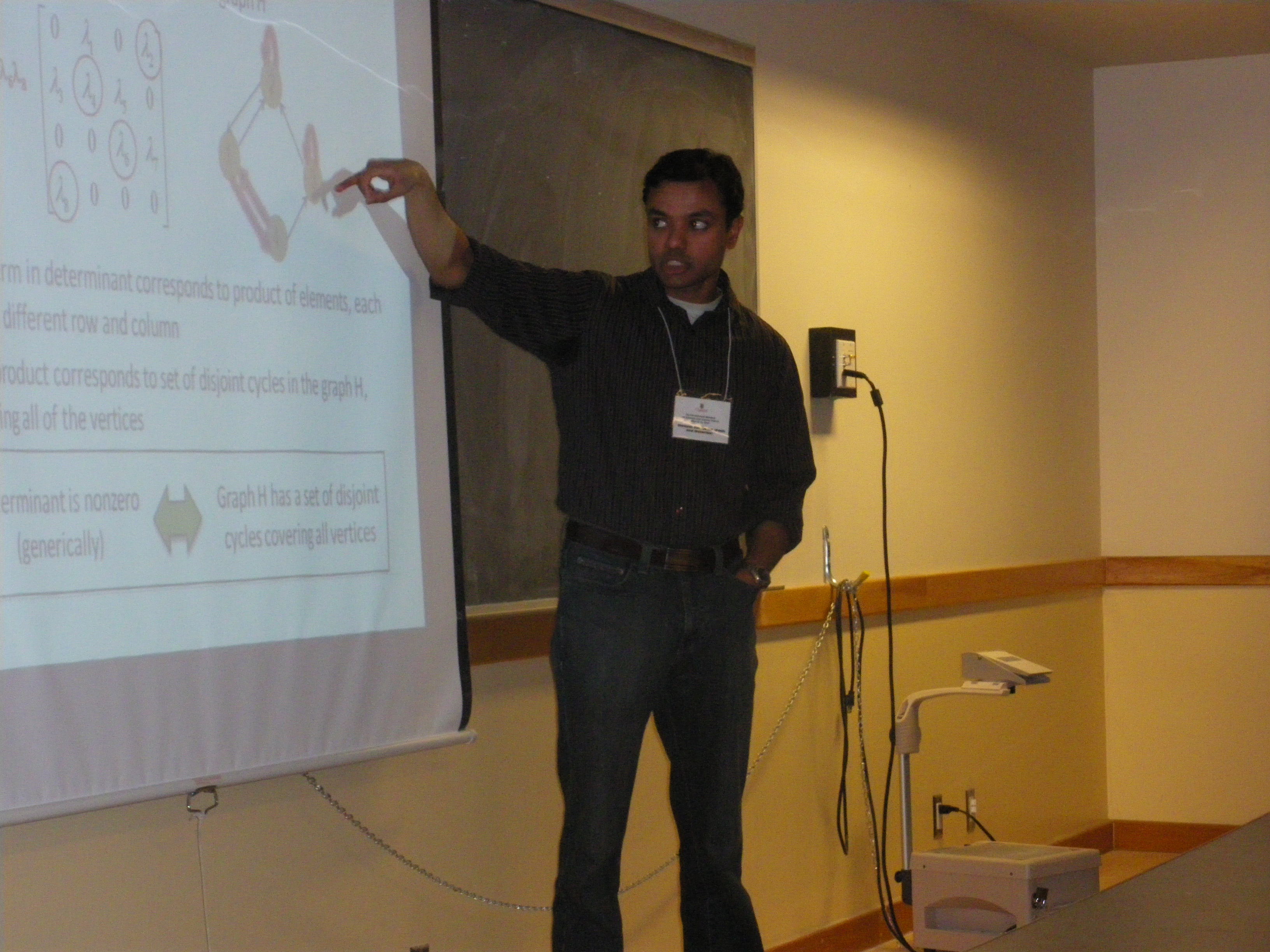
Title: Structured System Theory and its Application to Information Dissemination in Distributed Systems (1 hour)
Abstract: Structured system theory is a branch of control theory that analyzes systems based solely on the zero/nonzero structure of the system matrices, rather than the exact numerical values of the parameters. Through the use of graph-theoretic tools, this approach provides great insight and intuition into fundamental system properties such as controllability, observability and invertibility.
I will start the talk with a tutorial on structured systems, describing how graph theory can be used to test whether a given system has a certain property (generically). Next, I will show how structured system theory can be used to design algorithms for information dissemination in distributed systems. Specifically, I will show that if each node in a distributed system utilizes a certain linear iterative strategy for information dissemination, the entire network essentially becomes a linear structured system. I show that this algorithm possesses certain desirable characteristics (such as resilience to malicious nodes) by mapping these characteristics to properties of linear systems, and then applying structured system theory to relate these properties to the topology of the underlying network. If time permits, I will also describe how these techniques can be extended to treat the problem of controlling a multi-agent system with a leader agent, even when the state-space of each agent is constrained to lie in a discrete and finite set.